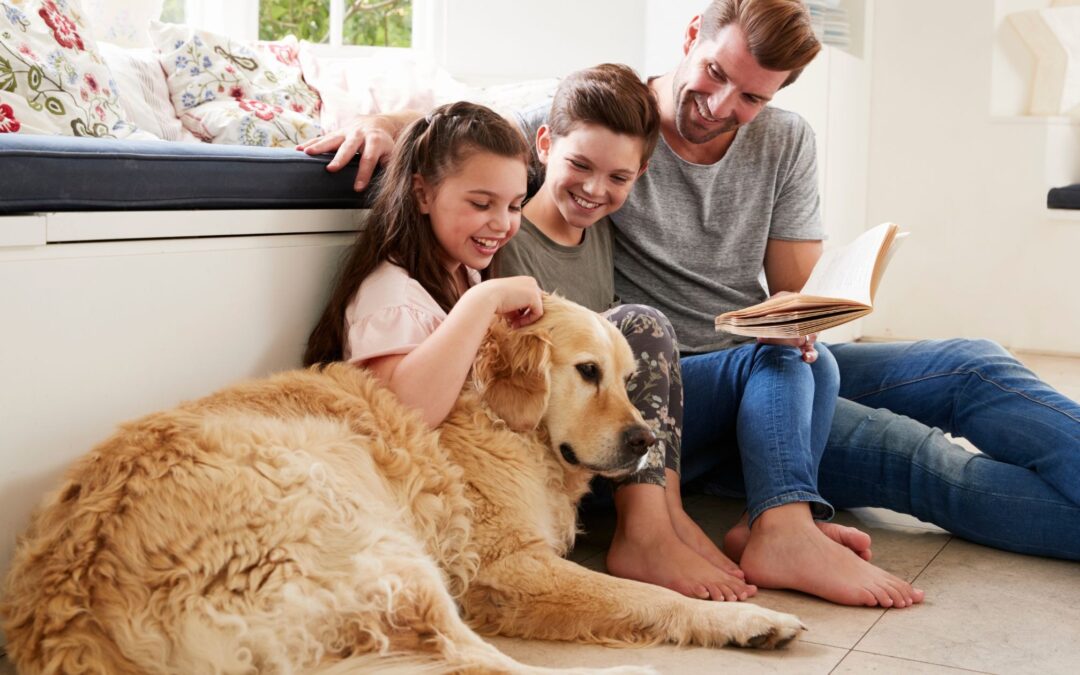Living with pets brings joy, laughter, and unique challenges to home maintenance. Families with furry friends face specific considerations when selecting new floors. The constant patter of paws, occasional accidents, and enthusiastic play sessions demand surfaces that withstand daily wear while maintaining beauty and comfort.
Finding the best flooring for dogs and other pets requires balancing durability, style, and practicality. The right choice protects the investment in a home while creating a comfortable environment for both humans and animals. Pet owners discover that certain materials outperform others in real-world conditions where muddy paws, sharp claws, and unpredictable messes become part of daily life.
Understanding Pet Friendly Flooring Needs
Pets impact floors in ways that differ from standard household wear. Dogs scratch surfaces when they walk, run, or play. Cats sharpen claws on accessible materials. Small accidents leave moisture that can damage vulnerable flooring types. Food and water bowls create constant exposure to spills in specific areas.
Families need flooring that addresses these challenges without sacrificing aesthetics. The surface must resist scratches from claws, handle moisture without warping or staining, and allow easy cleanup when accidents occur. Traction becomes important for pet safety, particularly for big dogs that can slip on smooth surfaces.
The best flooring options provide durability without compromising the overall design vision for the space. Pet friendly flooring has evolved beyond purely functional choices. Modern materials offer attractive designs that complement any décor while standing up to the demands of active households.
Best Flooring for Dogs and Active Pets
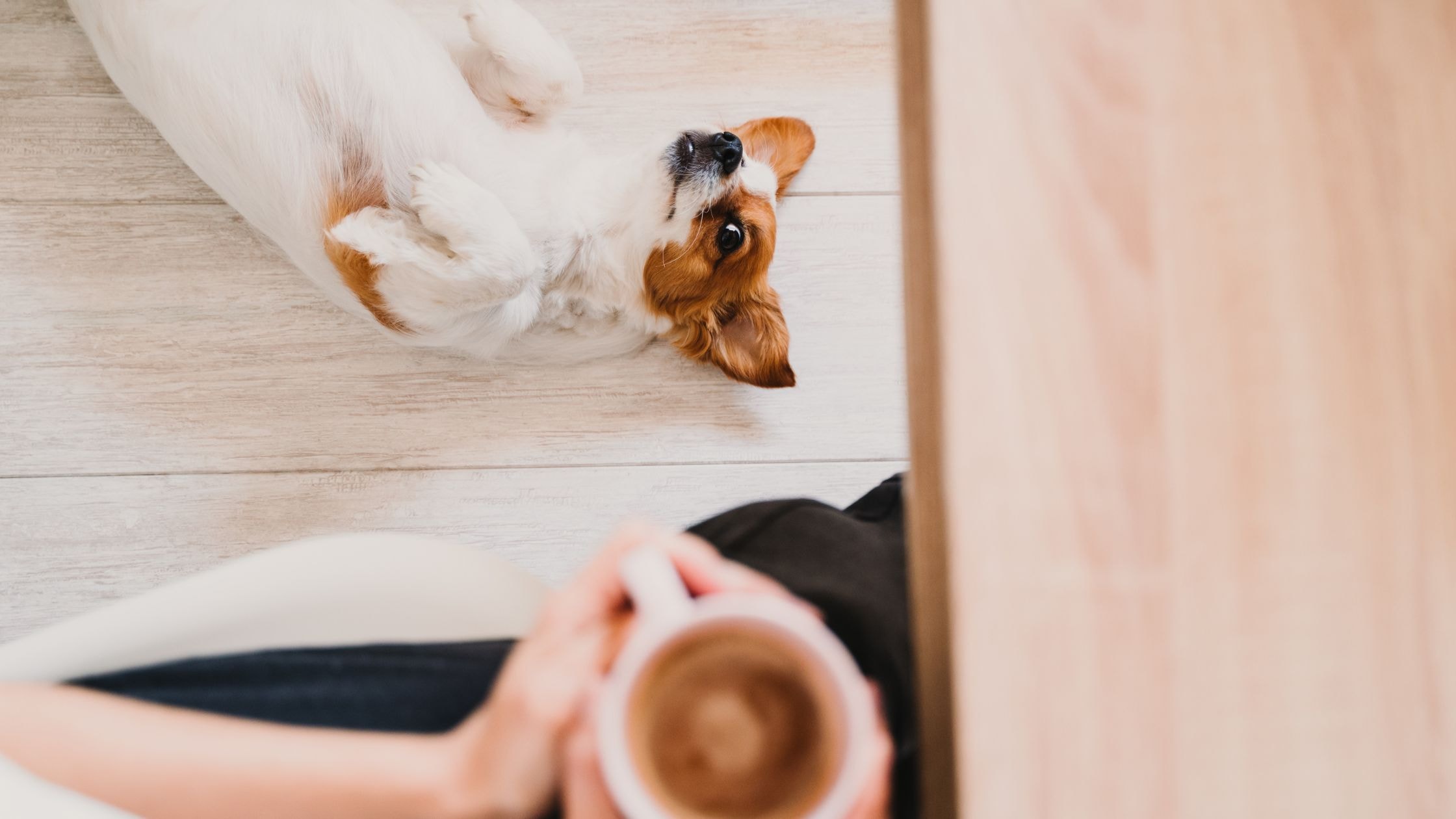
Vinyl: The Practical Champion
Vinyl flooring ranks among the top choices for pet owners. This versatile material comes in multiple formats, each offering distinct advantages. Vinyl plank flooring mimics the appearance of hardwood while providing superior water resistance and scratch resistance. The durable surface withstands scratches better than many natural materials.
Sheet vinyl covers entire rooms with seamless installation that eliminates gaps where dirt and moisture can accumulate. This continuous surface simplifies cleaning and prevents accidents from seeping into subfloors. The waterproof nature of quality vinyl protects against pet-related moisture damage.
Vinyl tile offers another practical option for homes with pets. Individual tiles install easily and allow for simple replacement if damage occurs in specific areas. The stone or ceramic appearance of vinyl tile brings visual interest without the cold, hard surface of actual stone materials.
Quick tip: Choose vinyl with a textured surface rather than smooth finishes to provide better traction for pets and reduce the risk of slipping.
Tile Floors: Durable and Easy to Clean
Ceramic tile and porcelain tile represent excellent choices for pet friendly flooring. These materials resist scratches, moisture, and stains with remarkable effectiveness. Dogs cannot damage the hard surface with their claws, and accidents wipe away without leaving lasting marks.
Tile floors excel in high-traffic areas where pets enter from outside. Mudrooms, entryways, and kitchens benefit from the easy cleanup tile provides. A simple mop removes dirt, hair, and spills quickly. The durability of ceramic ensures the floor maintains its appearance for decades.
The main consideration with tile involves temperature and comfort. Stone and ceramic surfaces feel cold underfoot, which some pets find uncomfortable during winter months. Area rugs placed strategically create warm spots where pets can rest. Radiant heating installed beneath tile solves the temperature issue while maintaining all other benefits.
Grout lines between tiles require proper sealing to prevent staining. Pet accidents can discolor unsealed grout over time. Regular maintenance of grout keeps tile floors looking fresh. Choose darker grout colors to minimize the appearance of dirt and stains in homes with pets.
Did you know? Larger tile formats mean fewer grout lines to clean and maintain, making them more practical for busy pet owners than traditional small tiles.
Laminate Flooring: Affordable and Scratch Resistant
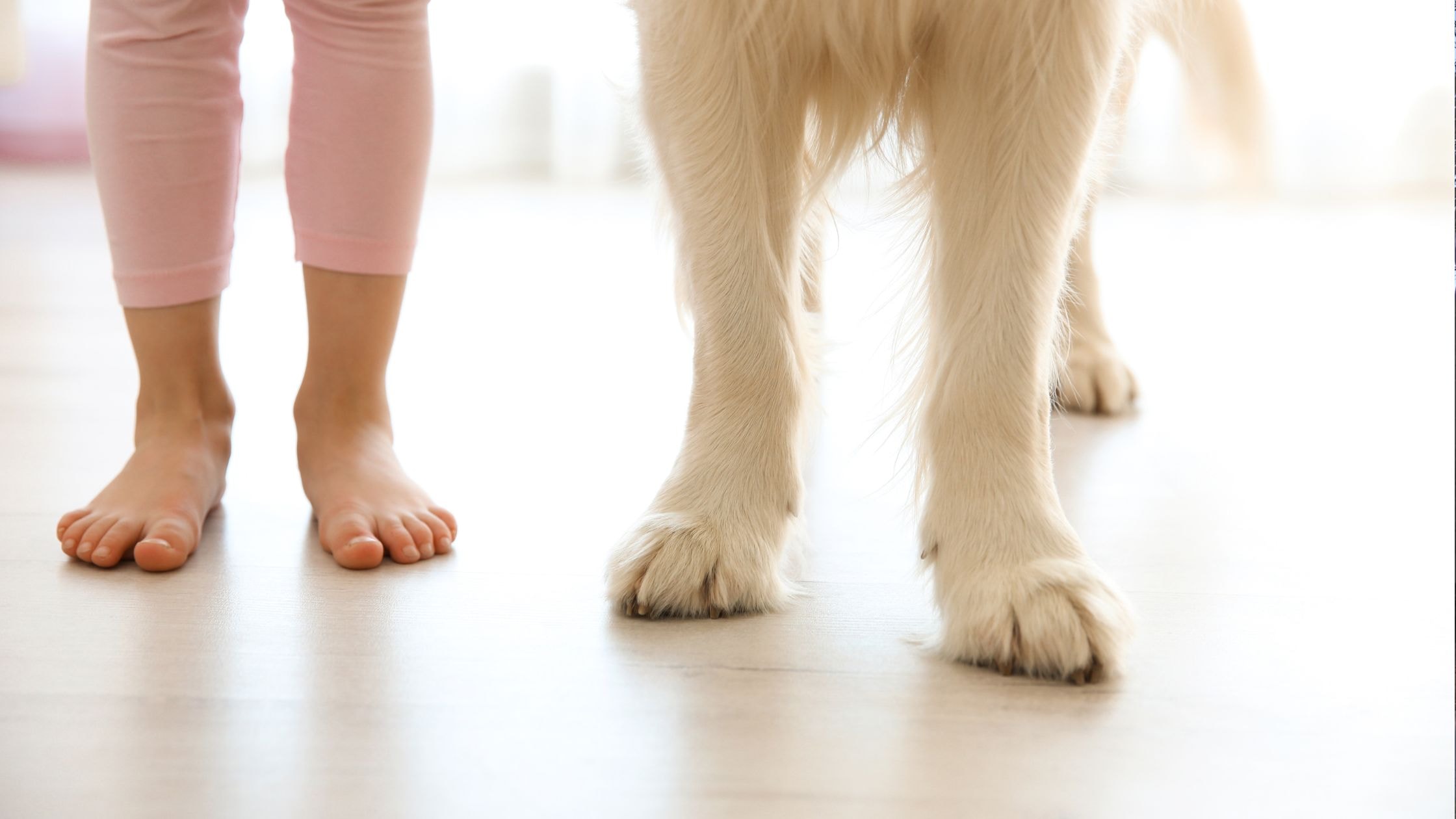
Laminate flooring provides a budget-conscious alternative to hardwood while offering better performance in homes with pets. Modern laminate features enhanced scratch resistant properties through protective wear layers. These surfaces withstand the daily traffic of dogs better than traditional wood floors.
The water resistant properties of quality laminate protect against minor spills and accidents. Quick cleanup prevents moisture from penetrating seams and causing damage. However, standing water still poses risks, so immediate attention to accidents remains important.
Laminate installs over existing floors in many cases, reducing renovation costs and time. The floating floor system creates a stable surface that handles pet traffic well. The extensive selection of styles and colors allows homeowners to achieve any aesthetic while maintaining practical durability.
Scratch resistant flooring technology in laminate continues to improve. Premium products feature AC ratings that indicate wear resistance. Higher ratings mean better performance in homes with big dogs or multiple pets. The investment in quality laminate pays dividends through extended lifespan and maintained appearance.
Comparing Laminate to Other Options
Pet owners often weigh laminate against hardwood and vinyl options. Each material serves specific needs and preferences. Laminate costs less than solid hardwood while providing comparable visual appeal. The scratch resistance exceeds that of softer wood species, making it more practical for active households.
When compared to vinyl, laminate offers a more authentic wood appearance and feel underfoot. However, vinyl surpasses laminate in waterproof protection. The choice depends on whether scratch resistance or moisture resistance takes priority. For detailed comparisons of these materials, Laminate vs. Hardwood Flooring: Which Is Best for Your Home explores the differences in depth.
Wood Floors: Natural Beauty with Considerations
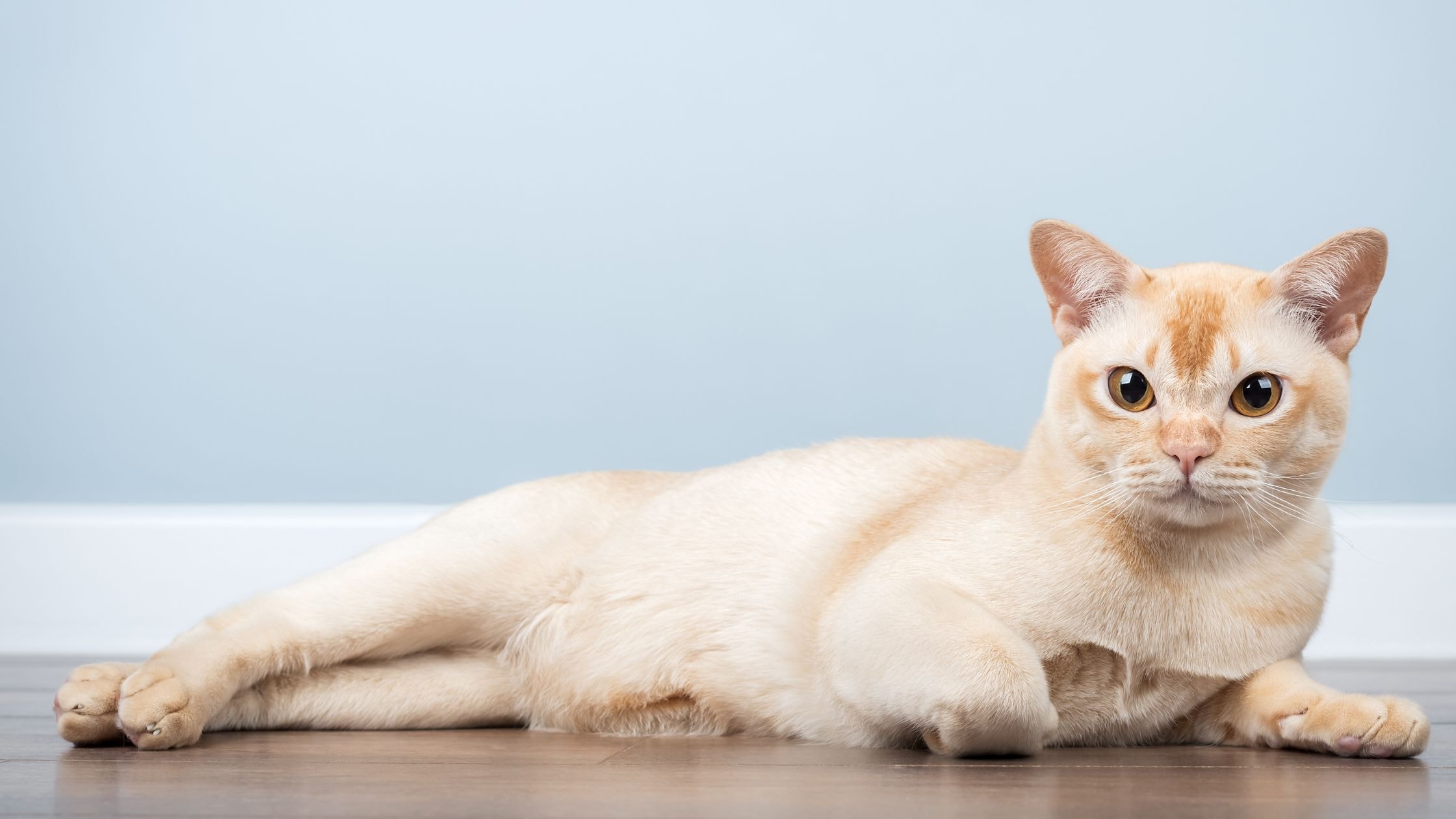
Hardwood flooring brings timeless elegance to homes but requires careful selection when pets share the space. Some wood species withstand scratches better than others. Oak, maple, and bamboo rank among the more durable options. Softer woods like pine show damage more readily under pet traffic.
The finish applied to wood floors impacts their performance around pets. Polyurethane coatings create protective barriers that resist moisture and minor scratches. Oil-finished floors require more maintenance but allow easier spot repairs. Pre-finished hardwood often includes factory-applied coatings with superior durability compared to site-finished options.
Wood floors develop character over time. Minor scratches and wear patterns become part of the floor’s story. Families who appreciate this patina find hardwood a great choice despite its vulnerability to pet damage. Refinishing restores the surface when wear becomes excessive, extending the life of the floor for generations.
Quick tip: Choose medium to dark stain colors for wood floors in pet households—they camouflage scratches and dirt better than light finishes while showing less fur accumulation than very dark colors.
Protecting Wood Surfaces
Pet owners can take steps to protect hardwood from damage. Keeping pet nails trimmed reduces the severity of scratches when dogs walk across the floor. Placing mats under food and water bowls prevents moisture damage. Area rugs in high-traffic zones preserve the wood underneath while providing comfortable resting spots for pets.
Bamboo flooring offers an alternative to traditional hardwood with enhanced durability. This rapidly renewable material resists scratches and moisture better than many wood species. The natural hardness of bamboo makes it a great option for homes with pets. The style options range from natural blonde tones to rich amber hues.
Scratch Resistant Flooring Technologies
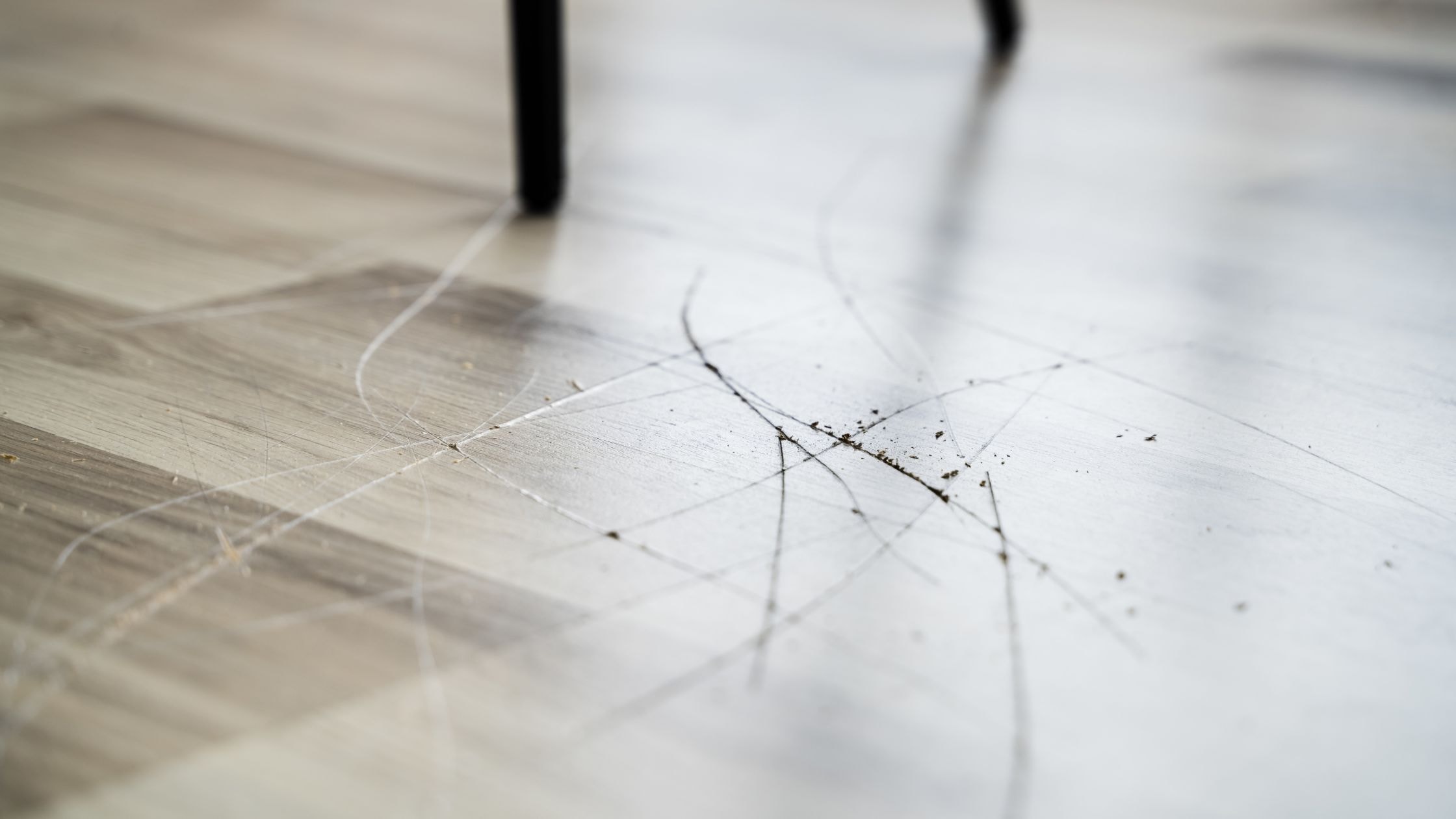
Modern flooring incorporates advanced technologies that enhance scratch resistance. Understanding these innovations helps pet owners select the most durable options. Wear layers on vinyl and laminate products provide the first line of defense against pet claws. Thicker wear layers mean better long-term performance.
Aluminum oxide coatings on laminate create exceptionally hard surfaces that resist scratches from even big dogs. These microscopic particles bond to the surface during manufacturing, creating protection that lasts the life of the floor. The technology allows laminate to compete with tile in terms of durability.
Ceramic and porcelain tile earn their reputation as scratch resistant flooring through inherent material properties. The fired clay surface ranks high on hardness scales, making it nearly impossible for pets to damage through normal activity. This natural durability requires no special coatings or treatments.
Water Resistant and Waterproof Options
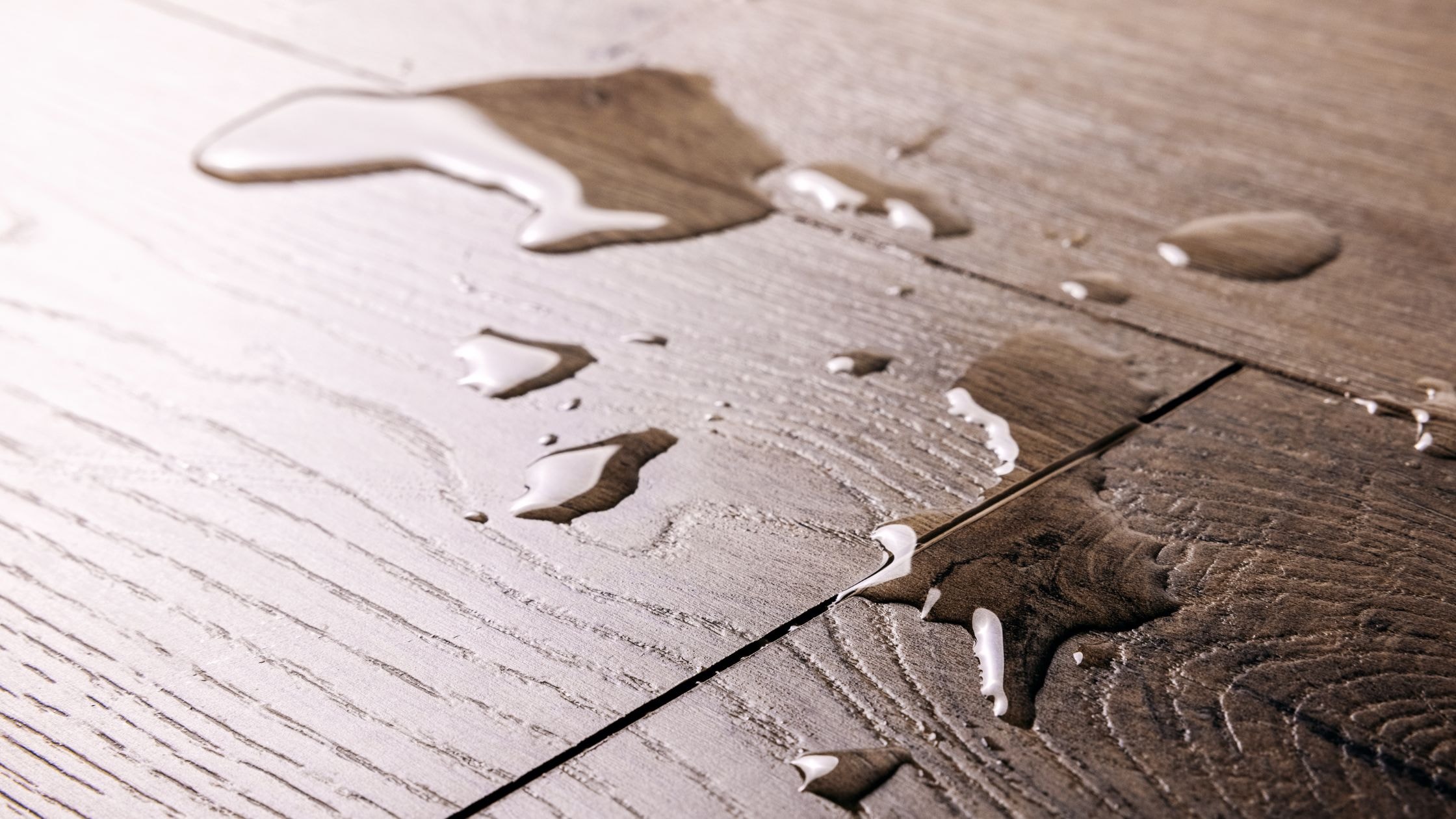
Moisture protection proves critical in pet friendly homes. Accidents happen, spills occur, and wet paws track water throughout the house. Flooring that withstands these challenges prevents costly damage and maintains its appearance over time.
Waterproof vinyl products lead the category for moisture protection. These materials resist standing water without warping, swelling, or staining. The complete barrier prevents accidents from reaching subfloors where they could cause structural damage or create odors. Sheet vinyl provides the most comprehensive protection through seamless installation.
Water resistant laminate offers improved performance over traditional products but stops short of true waterproof status. These floors handle minor moisture exposure well but suffer damage from standing water or repeated accidents in the same location. Quick cleanup and vigilant maintenance keep water resistant laminate performing well in homes with pets.
Tile floors provide natural waterproof protection through the ceramic or stone material itself. The concern shifts to grout lines, which require sealing to prevent moisture penetration. Epoxy grout offers superior water resistance compared to traditional cement-based products, making it worth the additional investment in pet households.
Carpet Considerations for Pet Owners
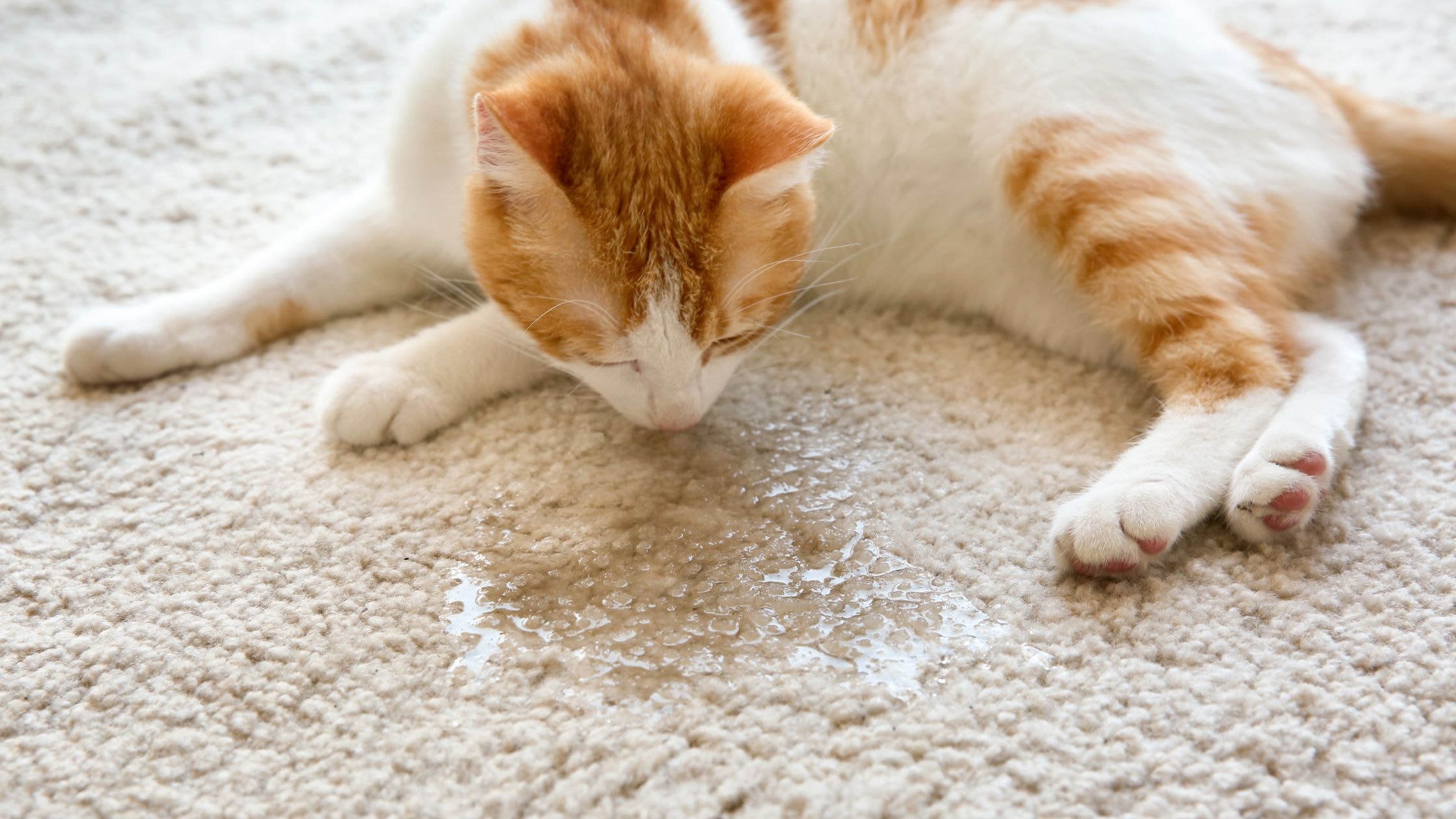
Carpet presents challenges in homes with pets but remains popular for its comfort and warmth. Modern carpet technology addresses some traditional concerns. Stain resistant treatments help fabrics resist pet accidents and dirt. Solution-dyed fibers resist staining better than surface-treated options.
Low-pile carpet performs better with pets than plush, deep-pile varieties. Shorter fibers resist trapping hair and dirt, making maintenance easier. The denser construction withstands pet traffic better and shows fewer wear patterns over time. Berber and other looped styles can catch pet claws, so cut-pile options prove safer.
Pet owners who choose carpet should select darker colors and patterns that camouflage dirt and stains. Neutral tones with texture or pattern hide imperfections better than solid light colors. Professional cleaning maintains carpet appearance and removes odors that accumulate despite regular vacuuming.
Area rugs provide carpet comfort without the commitment of wall-to-wall installation. This approach allows easy cleaning or replacement when wear becomes excessive. Placing rugs over hard surface flooring creates defined comfort zones for pets while maintaining the durability benefits of tile, vinyl, or laminate in main traffic areas.
The American Kennel Club recommends considering your dog’s age, size, and activity level when selecting flooring, as senior dogs benefit from softer surfaces that cushion joints while puppies require materials that withstand accidents during training.
Installation and Maintenance for Longevity
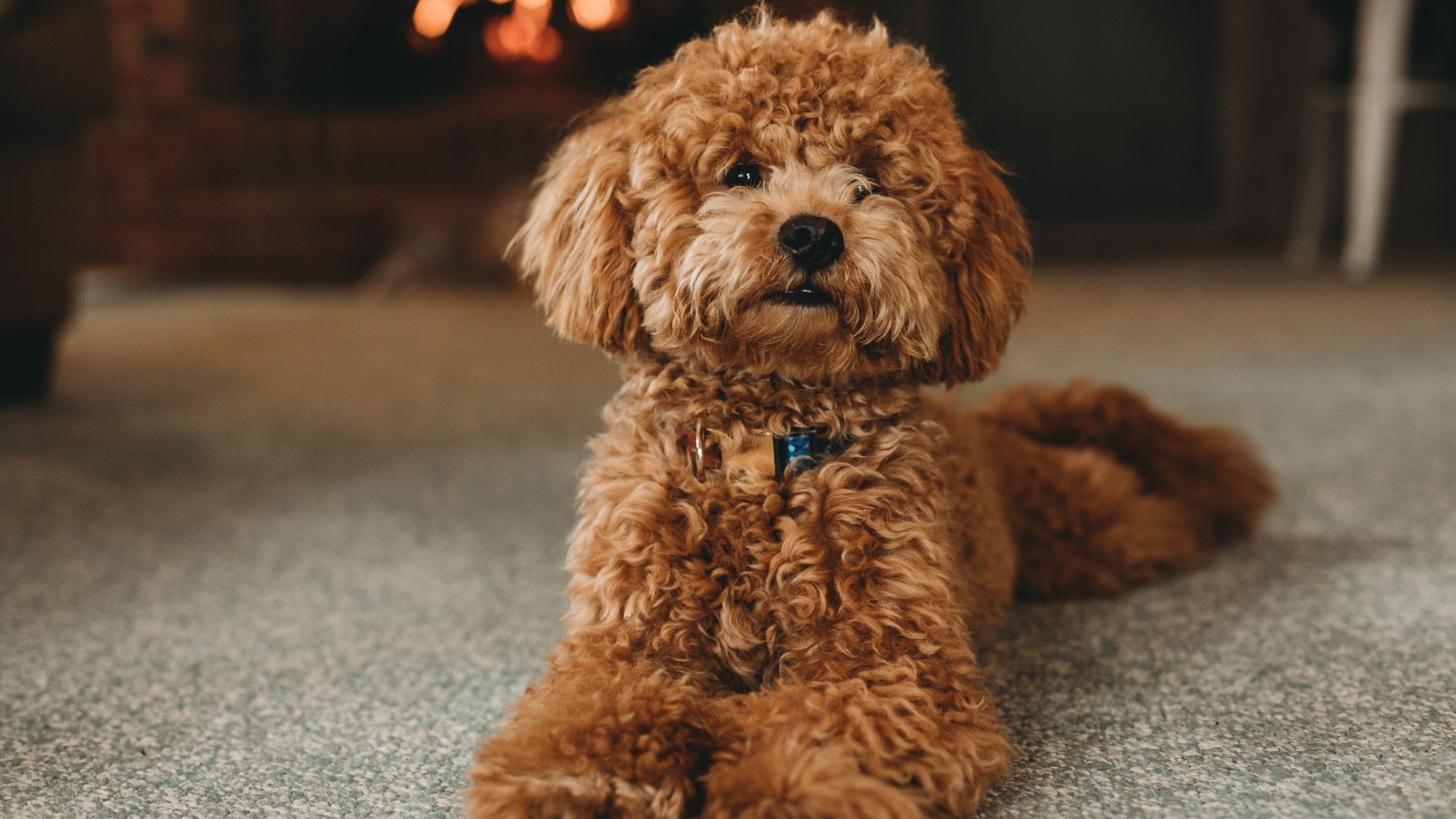
Proper installation ensures flooring performs as expected in homes with pets. Subfloor preparation creates a stable foundation that prevents future problems. Level surfaces prevent gaps where dirt and moisture accumulate. Moisture barriers protect against dampness that could compromise flooring materials.
Professional installation guarantees correct techniques and often includes warranties that protect the investment. However, many pet friendly flooring options accommodate DIY installation. The Ultimate Guide to Flooring Installation for Homeowners provides comprehensive information on tackling installation projects.
Regular maintenance preserves flooring appearance and extends its lifespan. Sweeping or vacuuming removes dirt and hair before they scratch surfaces or get ground into materials. Prompt cleanup of accidents prevents staining and moisture damage. Using cleaning products designed for specific flooring types protects finishes and prevents deterioration.
Trimming pet nails regularly reduces scratch damage across all flooring types. This simple step significantly impacts floor longevity. Placing mats at exterior doors captures dirt before it spreads throughout the house. These preventive measures cost little but provide substantial protection.
Frequently Asked Questions
What is the best flooring for homes with large dogs?
Ceramic tile and luxury vinyl represent the best flooring choices for big dogs. These materials resist scratches from heavy paws and withstand the impact of dogs running and playing. The durability of tile and the waterproof nature of vinyl handle accidents and spills without lasting damage. Both options provide easy cleanup that saves time in busy households.
How does bamboo flooring perform with pets?
Bamboo floors offer excellent scratch resistance due to its natural hardness. The material withstands pet traffic better than many traditional hardwood species. Bamboo also provides water resistant properties superior to standard wood. However, standing water still damages bamboo, so quick attention to accidents remains necessary. The affordable price and eco-friendly nature make bamboo a great option for pet owners seeking sustainable materials.
Can laminate flooring handle multiple pets?
Quality laminate flooring handles multiple pets well when homeowners select products with high AC ratings. These resistant surfaces withstand the combined traffic of several furry friends. Water resistant laminate provides adequate protection against minor accidents when cleaned promptly. The extensive selection of styles allows customization while maintaining durability. Lower-grade laminate may show wear more quickly in multi-pet households.
Is vinyl tile or sheet vinyl better for pet owners?
Sheet vinyl edges out vinyl tile for pet owners due to seamless installation. The continuous surface eliminates seams where moisture could penetrate or dirt could accumulate. This makes cleanup easier and provides superior waterproof protection. However, vinyl tile allows easier replacement of damaged sections. Both options offer scratch resistant surfaces and water resistant properties that serve pet households well.
What type of grout works best with pets?
Epoxy grout provides the best performance in homes with pets. This material resists staining better than traditional cement grout and requires no sealing. The waterproof nature prevents accidents from penetrating grout lines. Dark grout colors camouflage dirt and stains between cleanings. While epoxy grout costs more and challenges DIY installation, the durability justifies the investment in pet friendly homes.
How often should floors be cleaned in pet households?
Daily sweeping or vacuuming removes pet hair, dirt, and debris before they damage flooring surfaces. Mopping frequency depends on the flooring type and pet activity level. Homes with big dogs or multiple pets benefit from mopping high-traffic areas several times weekly. Spot cleaning accidents immediately prevents stains and odor development. This regular maintenance protects the investment in flooring and keeps the house fresh.
Does cork flooring work well with pets?
Cork flooring provides a comfortable, warm surface that many pets enjoy. The natural antimicrobial properties resist odors common in pet households. However, cork shows scratches more readily than tile, vinyl, or laminate options. Sharp claws can damage the softer surface. Cork works best in lower-traffic areas or homes with smaller, less active pets. Regular sealing maintains water resistance and extends the life of cork floors.
Are there affordable pet friendly flooring options?
Vinyl flooring ranks as the most affordable pet friendly option that maintains good performance. Sheet vinyl and vinyl tile both provide durable, waterproof surfaces at budget-conscious prices. Laminate flooring offers another affordable choice with decent scratch resistance and water resistant properties. Both materials install easily, reducing labor costs. The practical nature of these options makes quality flooring accessible to most pet owners.
What should pet owners avoid in flooring?
Pet owners should avoid soft hardwood species like pine or fir that show scratches easily. Natural stone with high porosity stains from accidents despite appearing durable. Plush carpet traps hair and odors while showing wear patterns quickly. Smooth, slippery surfaces pose safety risks for pets running through the house. Unsealed materials allow moisture penetration that leads to damage and odor problems.
How can flooring protect against pet odors?
Waterproof flooring prevents accidents from seeping into subfloors where odors develop and persist. Sealed surfaces resist moisture absorption that leads to smell retention. Tile, vinyl, and sealed concrete stop liquids at the surface level for easy cleanup. Antimicrobial treatments in some flooring materials actively resist odor-causing bacteria. Regular cleaning with enzymatic cleaners designed for pet messes eliminates odors before they set. Proper ventilation and immediate accident cleanup also protect against persistent smells.
Making the Right Choice for Your Family
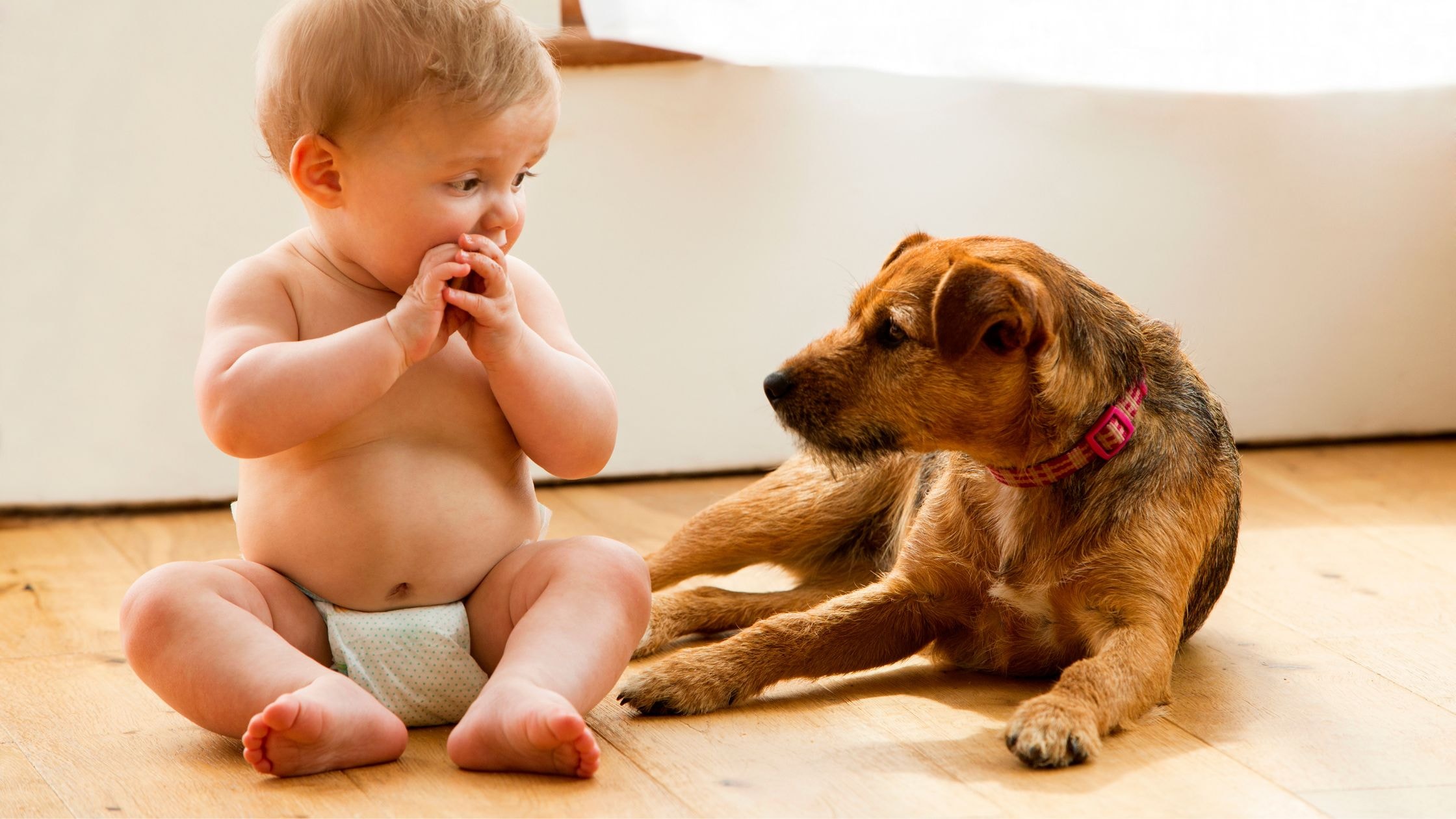
Selecting flooring for homes with pets balances durability, maintenance, and style. The best flooring combines durable properties with water resistant or waterproof protection. Easy cleaning capabilities save time and effort in active households. Traction keeps pets safe as they move through the space.
Each flooring type offers specific advantages. Tile provides unmatched durability and easy cleanup. Vinyl delivers waterproof protection and extensive selection at affordable prices. Laminate combines attractive wood appearance with practical scratch resistance. Hardwood brings natural beauty that ages gracefully despite minor wear.
The ideal solution often combines different materials throughout the house. Tile or vinyl in entries and kitchens handles the messiest areas. Laminate or hardwood in living spaces maintains aesthetic appeal. This strategic approach maximizes performance while controlling costs.
Pet friendly flooring does not require compromising on style or quality. Modern materials and technologies deliver surfaces that serve both functional and design needs. With proper selection and maintenance, floors withstand the demands of furry friends while creating beautiful spaces for the whole family to enjoy. The investment in appropriate flooring protects the home and provides peace of mind for years to come.

